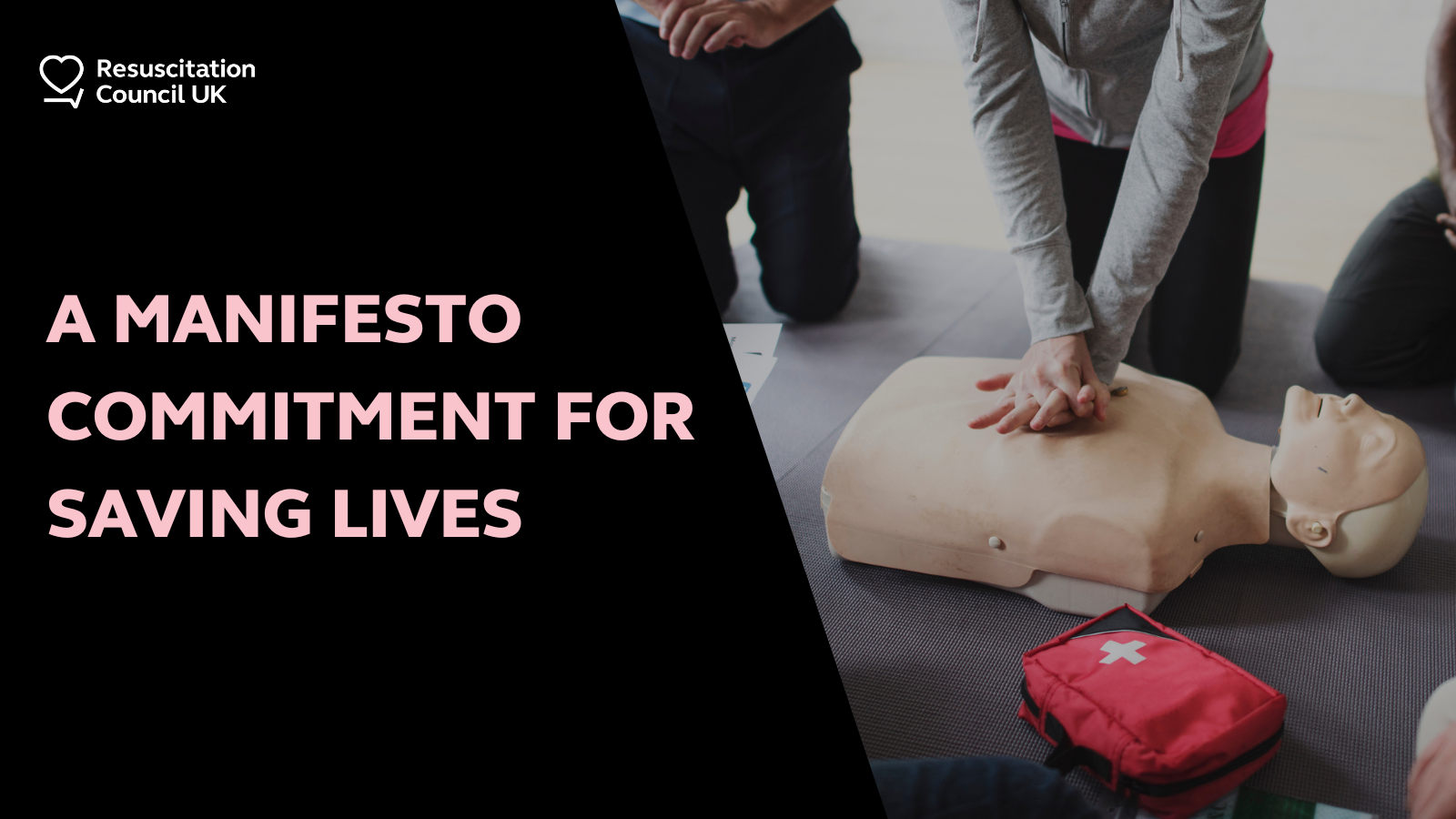
A manifesto commitment for saving lives - download here
Despite advances in resuscitation science and increased bystander CPR, survival rates for an out of hospital cardiac arrest remain stubbornly low in the UK (9.5%), and lag behind comparable countries across the world. We can, and we must, do better.
The next Parliament presents an opportunity to drive up the UK’s cardiac arrest survival rates to be among the best in the world and reduce inequalities in resuscitation. A person's ethnicity, where they work or where they live should not determine their likelihood of surviving a cardiac arrest, nor affect the quality of care they receive. To achieve this vision, Resuscitation Council UK asks that political parties make one simple manifesto commitment ahead of the next general election:
“We commit to creating more CPR-trained lifesavers in the next parliament than any previous UK Government”.
Creating a CPR-trained society will save more lives, improve public health, and enhance community resilience during emergencies. The UK Government can achieve this simple commitment with little funding.
Please read how this vision can be realised, through an economy of confidence and policy innovation, and by harnessing the United Kingdom’s already existing healthcare architecture.
How to achieve this manifesto commitment:
Ensure CPR training is being taught on the national curriculum
The requirement on secondary schools to give CPR training as part of the national curriculum came into force at the beginning of the pandemic. At present, there is no reliable evidence that it is being delivered on a consistent nation-wide basis. UK Government must monitor progress and ensure CPR training is being carried out across all Schools, so that all children have the skills they need to save a life.
Public awareness campaign, targeting CPR training in cardiac arrest hotspot areas, through Restart A Heart Day
Only half of bystanders in the UK would intervene when they witness someone collapse; a statistic that is substantially lower than comparable countries. Resuscitation Council UK has identified cardiac arrest hotspot areas, where there are higher rates of OHCA incidence and lower bystander CPR rates.
As part of ‘Restart a Heart’ day, we’d like the next Government to fund a public awareness campaign, that targets CPR training resources in cardiac arrest hotspot areas. This will make sure as many people as possible know how to save a life.
Implement CPR training as part of the driver licence
The UK Government can join nearly half of the countries in Europe who teach CPR training through the driver licence test. This public health initiative is low cost and provides a greater foundation of CPR knowledge among the UK population who may not otherwise be trained.
Resuscitation Council UK has an interactive digital training tool that meets the UK’s national standards for CPR, and defibrillator awareness training that is free to access on our website. All new drivers would need to do is pass our half-hour long test to acquire the lifesaving skills they need.
CPR training resources across all Jobcentre Plus centres in the UK
International evidence confirms that CPR training through schools, the workplace, and when acquiring a driver's licence, can reach the population effectively. However, new strategies are needed to ensure equal access to CPR training across all occupational groups.
Jobcentre Plus services already provide individuals with training, guidance and resources to enable job-searchers to find work. Resuscitation Council UK requests that the next Government offers all jobseekers access to a Lifesaver online training package. This resource will increase familiarity to key resuscitation skills and increase bystander CPR rates in a key part of UK society
All cardiac arrest survivors to access appropriate, ongoing, personalised support.
At present, survivors of cardiac arrest have significantly reduced quality of life due to a lack of aftercare. Unlike rehabilitation services for a stroke or heart attack, there is currently no formal care pathway for cardiac arrest survivors across the United Kingdom. Survivors aren’t being assessed for their health and social care needs beyond hospital. A programme of rehabilitation, targeted to the individual’s needs, improves quality of life, is cost-effective, and can reduce hospital readmissions.
Write to your member of parliament
We need political parties across the UK to prioritise this important general election commitment. So the more people who contact their member of parliament the better. To contact your local member of parliament, visit TheyWorkforYou.com and input your postcode to get their email address.
Next, copy and paste our template letter into an email and fill in the blanks. (Please CC' our team at communications@resus.org.uk).
You can also contact your parliamentary representative by post by looking up their address and printing and posting the letter.